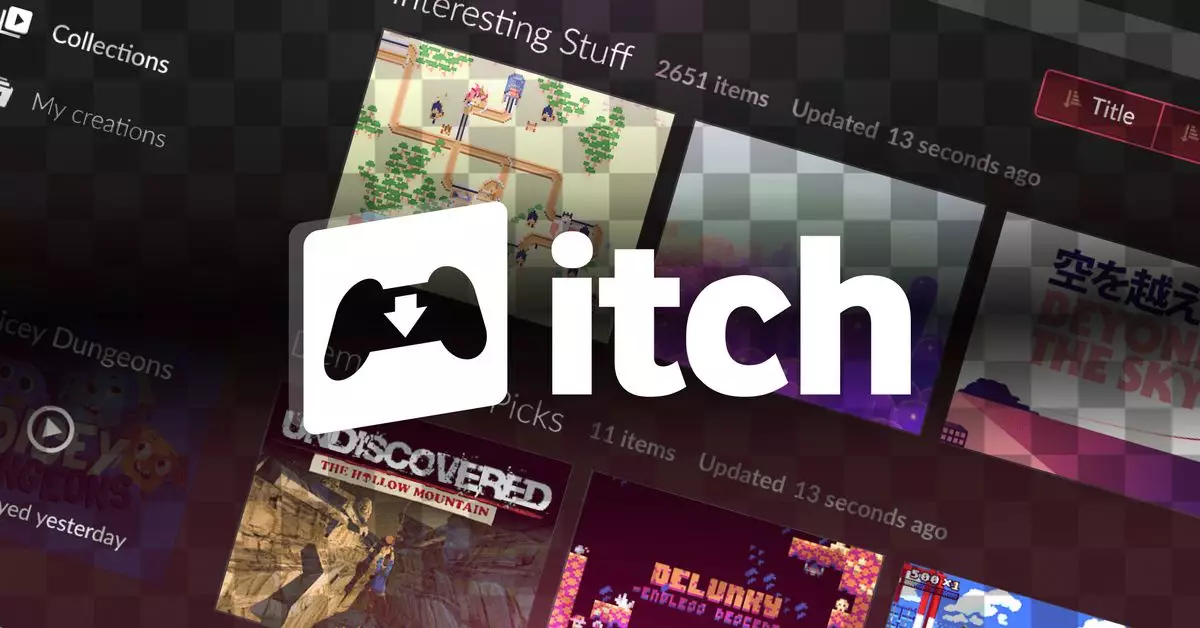Itch.io, a beloved platform for indie game developers and consumers, recently found itself besieged by unexpected technical difficulties due to what it describes as a misleading phishing report. Although the servers that host the games remain operational, the website’s domain is currently unresponsive for a significant portion of its user base, leading to widespread accessibility issues. This incident not only highlights vulnerabilities in domain management but also raises questions about the implications of automated systems in safeguarding internet spaces.
The primary culprit behind this domain crisis appears to be automated systems employed by domain registrars, particularly in the context of cybersecurity threats. Itch.io has publicly stated that it attributes the troubles to Funko, a major player in the collectibles industry, which utilizes an AI-powered brand protection tool named Brand Shield. This tool, according to Itch.io, incorrectly flagged their site, triggering an automatic response that led to the suspension of their domain. The incident raises concerns about reliance on technology that may not fully grasp the nuances of legitimate transactions— a growing issue for many businesses reliant on tech for their operational integrity.
In today’s digital landscape, effective communication is vital during crises. Itch.io took to social media to air their grievances, blaming the situation on the automated detection software. This openness can be seen as a dual-edged sword; while it informs users of the ongoing problems, it also reflects a critical need for clarity in navigating the complexities of digital security. Itch.io’s plea for accountability highlights an important discussion around the power and limitations of AI in brand protection and domain management.
For some tech-savvy users, a temporary workaround is available that involves modifying the hosts file on their devices to access the site using a specific IP address. However, this solution is not ideal for everyone, especially casual gamers who might not possess the technical know-how to execute such a task. This complexity amplifies frustration amongst users, particularly those who had recently subscribed to new features like customized Bluesky URLs tied to their Itch.io profiles. With the unique handle becoming invalid due to domain issues, many are left in limbo, unable to fully access or utilize the services they paid for.
This incident does not merely reflect technical woes; it also underscores a deeper anxiety within the indie game development community reliant on platforms like Itch.io. The fear of losing access or visibility due to external factors can impact developers’ confidence in utilizing such platforms for their creative outputs. Furthermore, the situation has broader implications for online marketplaces, calling for more robust systems to safeguard against arbitrary or misinformed domain suspensions.
As Itch.io continues to navigate this crisis, it serves as a poignant reminder that the digital economy is vulnerable to a range of external influences. The interplay of technology, brand management, and user access is complex and can lead to significant operational setbacks. It raises an essential question: how do platforms ensure not only their own stability but also maintain the trust and confidence of their user base in an era of increasing reliance on automated systems? As their situation unfolds, the industry will surely be watching closely.


Leave a Reply